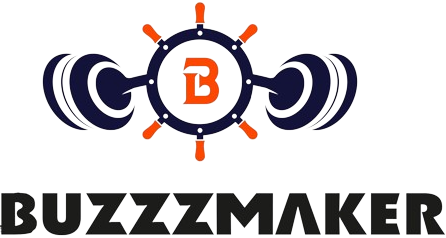Welcome to our AI blog, where we delve into the fascinating and rapidly evolving world of artificial intelligence. AI is no longer just a concept from science fiction; it’s transforming our everyday lives, industries, and the very fabric of society. Whether you’re a tech enthusiast, a business leader, or simply curious about AI, this blog will provide you with insights, trends, and practical knowledge to navigate the AI landscape.
What is Artificial Intelligence?
Artificial Intelligence, or AI, refers to the simulation of human intelligence in machines designed to think and learn like humans. This encompasses a wide range of technologies, from machine learning and deep learning to natural language processing and robotics. AI systems can analyze vast amounts of data, recognize patterns, make decisions, and even predict future outcomes.
The Rise of AI: A Brief History
- Early Beginnings: The concept of AI dates back to ancient mythology, but modern AI began in the mid-20th century with pioneers like Alan Turing and John McCarthy. The term “artificial intelligence” was coined in 1956 at the Dartmouth Conference.
- AI Winters: The journey of AI saw periods of optimism followed by “AI winters,” where progress stalled due to limited computational power and overhyped expectations.
- Resurgence: The 21st century has witnessed a resurgence in AI, driven by advancements in computing power, big data, and algorithms. Today, AI is at the forefront of technological innovation.
How AI is Changing Our World
- Healthcare: AI is revolutionizing healthcare with applications in diagnostics, personalized medicine, and predictive analytics. AI algorithms can analyze medical images, predict patient outcomes, and even assist in surgery.
- Finance: In finance, AI is used for fraud detection, algorithmic trading, and customer service through chatbots. AI-driven analytics provide deep insights into market trends and consumer behavior.
- Transportation: Autonomous vehicles, powered by AI, are set to transform transportation. AI systems enable self-driving cars to navigate, avoid obstacles, and make real-time decisions.
- Entertainment: AI is enhancing the entertainment industry through recommendation algorithms, content creation, and virtual reality experiences. Streaming services like Netflix use AI to suggest personalized content.
- Workplace: AI is automating repetitive tasks, enhancing productivity, and enabling smarter decision-making. Tools like AI-powered virtual assistants and predictive maintenance are becoming commonplace in workplaces.
The Ethical Implications of AI
With great power comes great responsibility. As AI becomes more integrated into society, ethical considerations are paramount:
- Bias and Fairness: AI systems can inherit biases from the data they are trained on, leading to unfair outcomes. Ensuring fairness and accountability in AI is crucial.
- Privacy: The use of AI in data collection and analysis raises significant privacy concerns. It’s important to balance innovation with the protection of individual privacy.
- Job Displacement: AI has the potential to disrupt job markets by automating tasks. While AI creates new opportunities, it also necessitates the reskilling of the workforce.
- Security: AI can be used for malicious purposes, such as creating deepfakes or cyberattacks. Robust security measures are needed to prevent misuse.
How to Get Started with AI
- Learn the Basics: Start with foundational knowledge in AI, machine learning, and data science. There are numerous online courses and resources available.
- Hands-On Practice: Practical experience is key. Work on projects, participate in hackathons, and explore open-source AI tools and libraries.
- Stay Updated: AI is a fast-evolving field. Follow industry news, research papers, and thought leaders to stay informed about the latest developments.
- Join Communities: Engage with AI communities, forums, and meetups. Networking with other AI enthusiasts can provide valuable insights and opportunities.
The Future of AI
The future of AI holds limitless possibilities. Here are some trends to watch:
- General AI: While current AI is specialized, the development of general AI, which can perform any intellectual task a human can, remains a long-term goal.
- AI and Creativity: AI is increasingly being used in creative fields, from composing music to generating art. The collaboration between human creativity and AI is opening new frontiers.
- AI in Climate Change: AI can play a pivotal role in addressing climate change by optimizing energy use, predicting environmental changes, and enhancing sustainability efforts.
- Human-AI Collaboration: The future will likely see more collaborative efforts between humans and AI, enhancing productivity and innovation across various domains.
Conclusion
Artificial intelligence is not just a technological trend; it’s a transformative force shaping our future. By understanding AI and its implications, we can harness its potential for positive impact while addressing the challenges it presents. Whether you’re a beginner or an expert, there’s always something new to learn and explore in the dynamic world of AI. Stay curious, stay informed, and embrace the AI revolution!






Leave a Comment